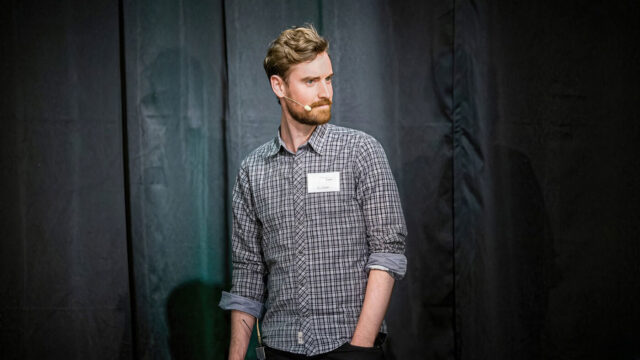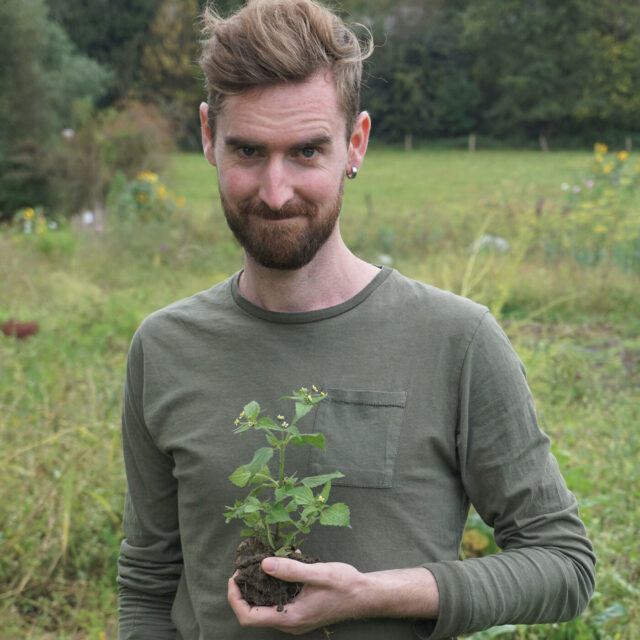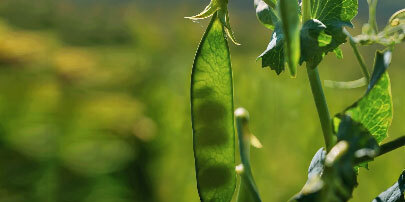
Giving science a voice
Whether it’s artificial intelligence, green tech or modern biotechnology, scientific innovations can profoundly change our way of life. We at KWS want to contribute to an informed public debate by sharing our passion for plant breeding and presenting challenging topics to a wide audience in a transparent, understandable and entertaining way.
The well-known science communicator David Spencer has also devoted himself to this goal: With a PhD in molecular biology behind him, he creatively explains the world of plant science to his audience on numerous channels. We spoke with him about the social importance of science communication, his enthusiasm for science slams, and the role of modern breeding methods for sustainable agriculture.
Video message from Dr. David Spencer
Many scientific advances are highly relevant for society, but are difficult to relate to without a specialist background. What role can science communication play here?
Science communication plays a decisive role when it comes to generating public acceptance for technological innovations. We need to reduce the complexity of scientific topics so that we can form well-founded opinions in a democratic society. There are many examples where a lack of understanding of scientific principles has very real consequences – from Covid to climate change.
Dr. David Spencer, born in 1991, completed his doctorate in molecular plant physiology at RWTH Aachen University. In addition to his research, he is active as a podcaster, science slammer, blogger, and author. In 2022, he received the SciComm Award from the German Botanical Society. As a board member of the “Eco-Progressive Network”, he actively shapes the discourse on modern plant breeding in the German scientific landscape. In 2025, he published his second book “Wurzelreich” (Rich in Roots), which takes us through the evolutionary history of plants in an entertaining way.

What motivated you personally to become active as a science communicator?
I’ve always been interested in environmental protection, always grown my own vegetables and cooked with fresh ingredients and spices from all over the world. At the same time, I am a plant scientist and work with genetic engineering, which for many people seems like a contradiction. That motivated me to go out and talk about the fact that organic farming and modern innovations are not mutually exclusive but fit together very well.
Crossbreeding and selection have always been part of agriculture. Our crops have always been modified by humans in order to meet our needs. When we realize that, then there is nothing more ecologically sustainable than a plant that can defend itself. Why shouldn’t we try to reintegrate natural defense mechanisms into the plants we have lost in the course of breeding if it means, for example, that we can then reduce the use of pesticides in fields?
Organic farming and modern innovations are not mutually exclusive but fit together very well.
David Spencer | Science Communicator
You took your first steps in science communication as a science slammer. What fascinates you about that format?
Science slams are an intensive format for communicating scientific content because people “have to” listen – much like being at a concert. That’s where it differs from social media, where you first have to gain the attention of the target group. On stage, you get a very direct response from the audience and can tell from their faces whether something was too complex. That makes science slams ideal for training people in how to “break down” science. Humor is also the best way to convey challenging content – it makes it much easier for the audience to relate to what we do.
On all channels
In addition to the KWS Portrait, we use many other formats to bring plant science topics to life.
World of Farming
Why does KWS maintain an “insect zoo”? How can artificial intelligence, robotics, and genome analysiscontribute to breeding innovative varieties? And what exactly happens in a “seed inventory”? In our “World of Farming” video format, we dive into key questions from our research and development work.
KWS for the ears
In the WoF podcast, together with in-house experts and external guests, we take a deep dive into issues of concern for the agricultural industry – from digital agriculture and vegetable breeding to fungal diseases.
KWS Science Slam
Plant breeding is a wide field that encompasses many disciplines, which is why science communication also plays an important role within KWS. At the annual “KWS Science Slam”, employees have the opportunity to give their colleagues insights into their specialist field with an entertaining slant. Svenja Bänsch, scientist at KWS Phytopathology, took to the stage at the last edition and dedicated her slam to the eventful life of the cabbage stem flea beetle Oli. “The cabbage stem flea beetle is a major issue for our team. The event was a great opportunity to share my work with colleagues.” Excerpts from the KWS Science Slam 2024 can be found in episode #11 of the World of Farming podcast.
Inspiring enthusiasm
Anyone who is exposed to science at an early age finds it easier to familiarize themselves with new topics. KWS supports a host of projects to help young people better understand the fascinating world of plants. That includes, for example, setting up school gardens that give children access to healthy food and teach them to enjoy vegetables and gardening. Inspire enthusiasm – that is also the aim of ‘Jugend forscht’: In the Germany-wide science competition, which KWS supports as a regional partner, pupils present their creative projects and gain valuable experience in the process.


















